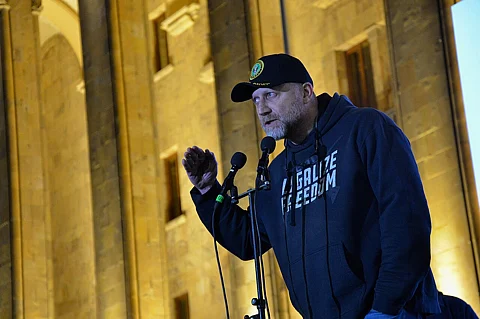

A court in Georgia on Thursday ordered opposition leader Zurab Japaridze into pre-trial detention, escalating tensions between the government and its critics following mass protests last year.
Japaridze, a leader of the opposition Coalition for Change, refused to appear before a parliamentary inquiry into alleged crimes committed during the 2004–2012 rule of former President Mikheil Saakashvili, now imprisoned. The opposition has dismissed the probe as illegitimate, accusing the ruling Georgian Dream party of wielding it to suppress dissent.
The Tbilisi City Court ruled in favor of prosecutors, who sought detention after Japaridze declined to pay bail and was held in contempt of parliament. His lawyer, Irakli Chomakhashvili, called the decision "politically motivated," aimed at silencing a prominent government critic.
Japaridze, a key figure in 2023–2024 protests, had denounced the proceedings as a "sham trial," alleging Georgian Dream is dragging the country "into dictatorship." Under Georgian law, ignoring a parliamentary summons can lead to a year in prison.
The case reflects widening repression, with other opposition figures facing similar charges. Critics accuse the government of adopting authoritarian tactics akin to Russia’s, steering Georgia away from its EU aspirations.
Last year, Prime Minister Irakli Kobakhidze postponed EU accession talks until 2028, reigniting protests initially sparked by the controversial "Foreign Influence" law—dubbed the "Russian Law"—which mandates NGO registration as "foreign agents."
The hearing drew diplomats and rights monitors, though many were barred due to space limits. As police tightly controlled access, Japaridze defiantly declared, "In the end, we will win," before being handcuffed.
Opposition leaders and civil society groups condemned the ruling. Salome Zurabishvili, Georgia’s president, called it a "shameful" political maneuver, while Nika Gvaramia of the Coalition for Change accused the government of sustaining power through "fear and arrests."
With Georgia’s political divide deepening, the detention underscores a broader struggle over the nation’s democratic future.